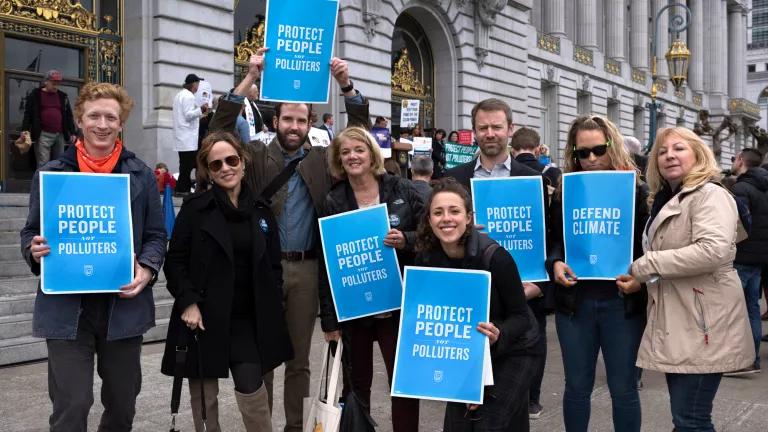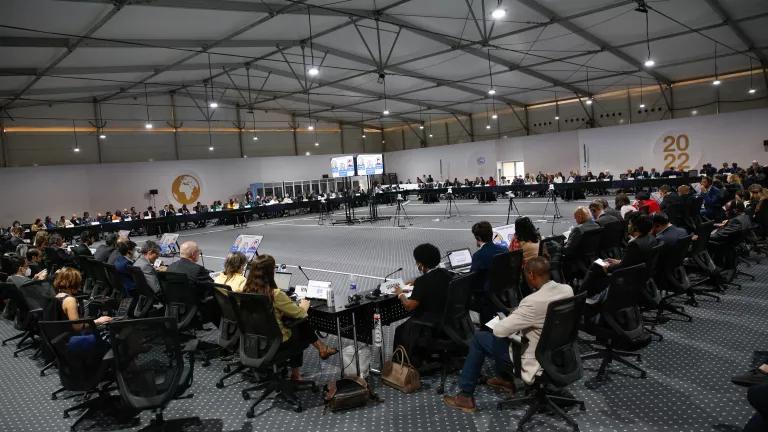Latin America Green News: Green Roofs in Mexico, a Green Grid in Uruguay, Green Tax Incentives in Colombia
Latin America Green News is a selection of weekly news highlights about environmental and energy issues in Latin America.
To get the weekly Latin America Green News blog delivered directly to your email, subscribe here.
May 5th – 11th, 2016
Climate Change
Mexico City is currently Latin America’s leader in green roofs with over twenty thousand square feet of green space in the city’s buildings. The roofs, which include well-developed gardens, live vegetation and a proper filtration system, help to reduce high levels of pollution by filtering air and to combat the heat island effect that is intensified by climate change. Marco Antonio Sanchez, commercial director of “Azoteas Verdes”, a Mexican green roof company, said “green roofs clean the air we breathe, filter suspended particles and generates oxygen, promote social welfare and add value to a property”. The city government currently offers a 10 percent reduction in property tax as a way to incentivize the voluntary installation of green roof systems. (Proyecto 40 5/1/2016)
Nine thousand citizens from Guatemala’s Dry Corridor will be working with the United States Agency for International Development (USAID) to develop technology that will mitigate the effects of climate change on agriculture. The collaboration is part of a USAID project known as “I Adjust”, an initiative that aims to improve food security and resilience in the Dry Corridor by developing climate-smart farming techniques families can use in the hotter and more arid seasons brought on by climate change. Just last year, the decreased rainfall in Guatemala caused small-scale corn and bean farmers to lose between 80-100 percent of their crops. These losses in crops primarily affect indigenous populations and risk future food security. (El Pais 5/4/2016)
Deforestation
More than 60 indigenous groups and NGOs from Peru, Europe and the United States denounced United Cacao in a letter to the London Stock Exchange (LSE) and market regulators this week, stating that the company infringed on the rules of the Alternative Investment Market (AIM) when they engaged in illegal deforestation and clear-cutting in the Peruvian Amazon. The letter calls for the company to be removed from trading on the AIM in light of the breach in rules. Julia Urrunaga, Program Director of the Environmental Investigation Agency in Peru, said “The illegalities, abuses, and forest destruction perpetrated by Dennis Melka’s companies in the Peruvian Amazon have been public for years now. In spite of the Peruvian government having ordered the companies to stop operations and comply with the law, they continue to systematically violate Peruvian laws and ignore the Peruvian authorities.” (Business Wire 5/4/2016)
A recent report from the Paraguayan NGO Iniciativa Amotocodie alerts that deforestation in the Chaco region of Paraguay has increased by 375 percent between 2005 and 2015 and is so pervasive now that it threatens the livelihoods of the small population of indigenous Ayoreo Indians, one of the last remaining tribes in the world that have not made contact with postcolonial society. The widespread deforestation motivated mainly by agricultural activities is destroying the places where the Ayoreo Indians live, hunt and gather. Now the area faces an additional threat from prospective oil and mineral extraction projects. (Terra 5/3/2016)
Renewables
This week, in a period of 24 hours, Uruguay produced 100 percent of its energy from renewable sources and hydropower (70 percent from hydropower, 21 percent from wind, eight percent from biomass and .4 percent from solar). In the span of two years, over $2 billion USD have been invested in renewable energy in Uruguay. According Ramón Méndez, Director of the Uruguayan Housing and Environment Ministry's Climate Change Office, investments helped push the growth of the renewables sector, spurring the diversification of the country’s energy matrix seen today. (El Nuevo Dia 5/9/2016)
A China-Mexico partnership will invest $200 million USD in wind farm projects in Mexico. Mexican energy developer Vive Energia and Chinese turbine manufacturer Envision Energy will work together to build their first 90 MW wind farm in Progreso, Yucatan. According to Rafael Valdez, Director of Envision Energy in Latin America, at $120 million, "this project represents the largest investment ever by any Chinese company in Mexico's wind energy sector." The rest of the investment ($80 million USD) will go towards a second wind farm project (70 MW), located 50 miles east of Progreso. The two projects are among 16 solar plants and wind farms obtained at the federal government auction in late March by 11 firms from five different countries who will build the new projects throughout Mexico. (China Daily 5/9/2016)
El Salvador is looking to attract investments from Brazilian companies particularly for the development of its renewable energy sector. The region would like to add 150 MW to its energy matrix through wind and solar projects. The Central American country has already received requests for bids in this sector, and expects investments will continue to grow to about $300 million by 2019. A few Brazilian companies have demonstrated interest in El Salvador, which, according to the Director of El Salvador’s Commercial Office, are due to the country’s open market policies. (TRT Español 5/11/2016)
Colombia’s Mining and Energy Planning Unit (UPME) has approved, for the first time, the use of tax incentives for renewable energy projects, made possible by a law passed in 2014. The project, a 111 KW solar plant, is already being built by Synkrom Solar. The tax incentive will help cover the cost of the solar panels, 400 in total, priced at $66,000 USD (198 million pesos), of which $10,000 USD (31 million pesos) will come from taxes and will be deducted as part of the new tax incentive. UPME celebrated the first use of the incentive, viewing it as an opportunity to continue diversifying the country’s energy matrix. (Energy Press 5/6/2016)
President Juan Carlos Varela of Panama, attended an energy summit in the U.S., where he highlighted his government’s achievement in attracting over $1.5 billion USD in foreign investments to expand its renewable energy sources. In 2014, Panama received more than $430 million USD to build a 240 MW wind farm, which currently supplies 15 percent of the country’s energy demands. Varela believes the region is set to become a center for natural gas distribution throughout Central America. (El Siglo 5/5/2016)
This week's blog was completed with the help of contributions from Andrea Becerra.




